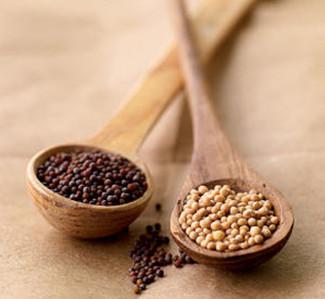Parables are stories, not theological arguments. They are simple, sometimes thought-provoking, everyday stories that everyone can understand. But they describe for us a way of seeing our lives through another lens, looking with a sharper focus at the way Jesus would have us see and experience life around us. And we need to listen carefully. There are thirteen parables in the Gospel of Mark, two of which appear in today's Gospel. And Jesus introduces them by saying, "This is how it is with the kingdom of God…." In other words, "Let me tell you about the kingdom of God..."
 Jesus taps into our imaginations to help us discover the surprising places and ways our God is acting. The kingdom that Jesus speaks of is not about a territory or a place. It's not about the afterlife in heaven. It's about God acting in the here and now and the parables are clues to how and where to look.
Jesus taps into our imaginations to help us discover the surprising places and ways our God is acting. The kingdom that Jesus speaks of is not about a territory or a place. It's not about the afterlife in heaven. It's about God acting in the here and now and the parables are clues to how and where to look.
Both parables begin in ordinary, insignificant and inconsequential ways. Seed is scattered. A tiny mustard seed is planted. In the first parable the farmer does very little work - if any - while the seed grows to maturity. "On its own accord the land yields fruit." Then, at the right time the farmer re-enters the story to do the work of harvest.
One thing is sure: Jesus wasn't trying to teach farmers how to plant their crops. Even if we have only planted a small backyard vegetable or flower garden, we know we don't just scatter seed, forget about it and come back much later to pick flowers for a bouquet, or vegetables for a summer salad. After planting, there is weeding, watering, fertilizing, thinning, etc. Then, if we're lucky, a harvest.
What Jesus seems to be saying in this parable is that despite our efforts - or lack of them - and despite our failures and successes, there will be a harvest nonetheless. It doesn't all depend on us. We can trust that while we are simply "scattering seed" there is set in motion an unavoidable force that will come to fruition.
And this idea is reinforced by the second parable. Our attention shifts away from thinking about quantity to considering the quality of the harvest, the faith we already have. Having faith doesn't automatically give the believer the power to perform crowd-pleasing spectacles or life-saving miracles. But it does mean that we are in touch with God and experience God as the source of that energy which enables us to live good lives, marked by the ability to forgive as we ourselves have been forgiven, to reach out to one another as we ourselves have been found and embraced by God.
The ministry of God’s kingdom calls for a lot of hard work. We are challenged to apply ourselves to where the needs are, which might be as close as in our own homes or backyards. And as much as we try, we have little to do with making the seed grow. It has a life of its own. There will be a harvest. There will always be a harvest no matter what.
Ordinary people like us build up God's kingdom and that kingdom has the power to transform the world in extraordinary ways and in surprising places.





